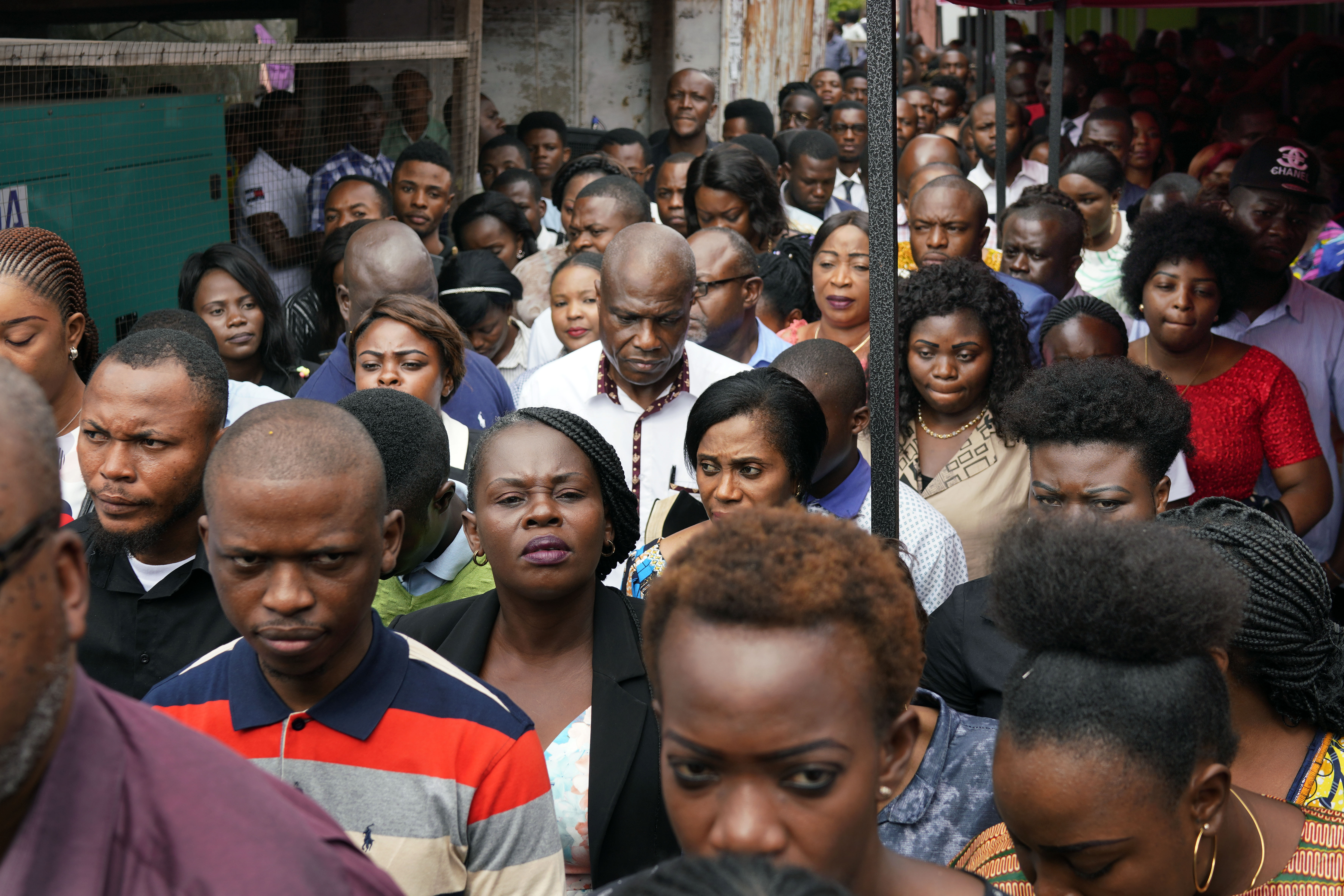
Congo's neighbors call for vote recount in troubled election
KINSHASA, Congo (AP) — Congo’s neighbors are calling for a vote recount in the disputed presidential election and suggesting the formation of a government of national unity to avoid possible instability.
The statements by the southern African and Great Lakes regional blocs put new pressure on the government of outgoing President Joseph Kabila to find a peaceful and transparent solution to a growing electoral crisis in one of Africa’s largest and most mineral-rich nations.
The declared presidential runner-up, Martin Fayulu, filed a court challenge over the weekend demanding a recount, citing figures compiled by the influential Catholic Church’s 40,000 election observers that found he won 61 percent of the vote.
Fayulu accuses Kabila of making a backroom deal to declare as the winner opposition leader Felix Tshisekedi, who came in a distant second according to the Catholic Church’s results. Kabila is suspected of such a deal to protect his vast assets from Fayulu’s anti-corruption efforts. Congo is a major source of the minerals central to smartphones and electric cars worldwide.
Congo’s electoral commission has said Tshisekedi won 38 percent of the vote and Fayulu 34 percent. It later announced that Kabila’s ruling coalition had won a majority in legislative and provincial elections, which would constrain any attempted reforms by Tshisekedi if he takes power.
Kabila met Sunday with the members of his coalition, announcing they would eventually reach out to the newly elected Tshisekedi for “cohabitation” in parliament.
The disparity in the ruling coalition’s results in the presidential and other elections has raised questions in a vote also troubled by the malfunctioning of voting machines, polling stations that opened hours late and the last-minute decision to bar some 1 million voters in two communities affected by a deadly Ebola outbreak.
The Great Lakes statement issued overnight expressed “deep concern” about the various challenges to the official results, and urged Congolese authorities to be more transparent in the interest of the country’s stability.
It followed a similar statement by the influential Southern African Development Community, which has 16 members including regional powers South Africa and Angola and rarely challenges countries’ election results.
The statements by African groups may have more influence with Kabila’s government, which has criticized Western pressure over two years of turbulent election delays as many worried that Kabila was seeking a way to stay in power.
The International Conference on the Great Lakes Regional group includes 11 countries including Angola, Burundi, Congo, Rwanda, Sudan and is led by the president of Congo’s smaller neighbor Republic of Congo.
Fayulu’s opposition coalition welcomed the new regional stance. “It would be dangerous not to support the democratic process,” he said in a Twitter post.
Congo’s 80 million people have been largely peaceful since the Dec. 30 vote but at least a dozen people have been killed in protests. Internet service, cut the day after the vote, remains off.
___
Associated Press writer Louis Patrick Okamba in Brazzaville, Republic of Congo contributed.
The Western Journal has not reviewed this Associated Press story prior to publication. Therefore, it may contain editorial bias or may in some other way not meet our normal editorial standards. It is provided to our readers as a service from The Western Journal.
Truth and Accuracy
We are committed to truth and accuracy in all of our journalism. Read our editorial standards.
Advertise with The Western Journal and reach millions of highly engaged readers, while supporting our work. Advertise Today.












